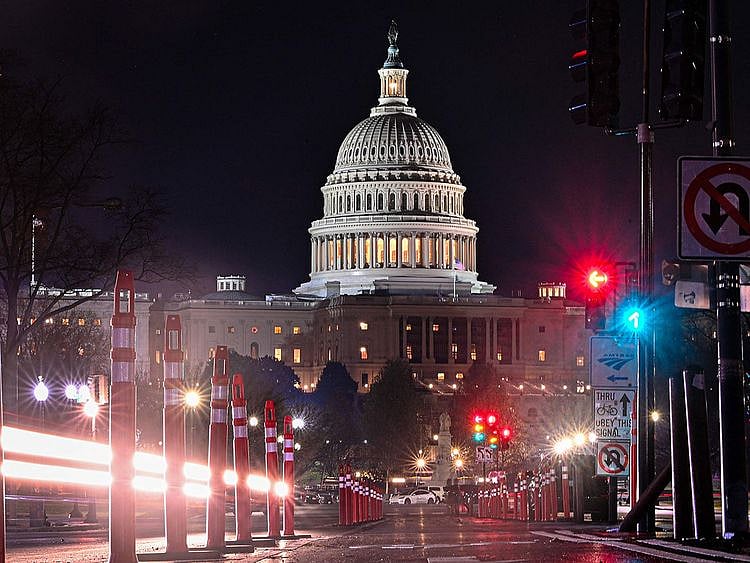Dubai: The world’s largest economy is switching the lights off—at least partially. If US lawmakers fail to strike a funding deal, large parts of the federal government will close.
Hundreds of thousands of workers won’t get paid. Vital data releases will be delayed. Political brinkmanship will be on display for the world to see.
For Americans, shutdowns mean shuttered parks, longer queues for services, and uncertainty for families relying on government paychecks. But the question for the rest of the world is simple: does this political drama matter beyond US borders?
The answer: it could.
What happens in US shutdown
A shutdown doesn’t mean America stops functioning. The military still runs, Social Security cheques still go out, and law enforcement remains in place. But “non-essential” government staff are furloughed—forced to stay home without pay. Others must work without salaries until Congress agrees on a budget.
The impact builds week by week. Economists estimate that each week of shutdown trims about 0.1% off US quarterly economic growth. In 2018–19, a 35-day shutdown—the longest in history—shaved off around 0.4% of output. Once workers return and receive back pay, much of that loss is clawed back.
Markets have also proved resilient. Since 1976, the S&P 500 has actually risen in the year after shutdowns. In the last major episode, stocks climbed more than 10%.
So why the concern this time?
US economic voes at wrong time
The timing makes this showdown more dangerous. The US economy is already flashing warning signs:
Job creation has slowed sharply.
Inflation has remained stubbornly high.
Consumer confidence is fragile.
Crucially, a shutdown would halt the release of key data like the monthly jobs report. That matters because the Federal Reserve relies on those numbers to decide whether to cut or raise interest rates. Without data, the Fed is steering blind at a moment when it is juggling inflation pressures with a weakening labor market.
In normal times, this would be a nuisance. In fragile times, it’s riskier.
Ripple effects for global markets
The US dollar and Treasury bonds are global reference points. They anchor everything from oil pricing to emerging market borrowing costs. In past shutdowns, both have been relatively stable—but short bursts of volatility can occur.
Here’s what could happen:
Oil: A weaker dollar can lift crude prices. For oil exporters like the UAE, that boosts revenue but risks higher global inflation.
Markets: Investors may briefly move into “safe havens” like gold or bonds. Equities, historically, have shrugged off shutdowns.
Credit rating: While a shutdown doesn’t mean the US defaults, rating agencies have warned about America’s fiscal position. Any downgrade would rattle global markets.
Confidence: The bigger danger is psychological. If businesses and consumers worldwide see Washington unable to govern, it chips away at trust in the world’s largest economy.
Why UAE readers should care
For the UAE, the link is direct.
Oil, the region’s key export, is priced in US dollars. Dollar swings affect revenue and budget planning.
Investors in Dubai and Abu Dhabi are tied to global market sentiment. A sharp sell-off in New York often ripples into the Gulf.
The UAE dirham is pegged to the dollar. Any shift in US monetary policy—complicated further by shutdown uncertainty—feeds directly into UAE interest rates.
In short: while a shutdown may not crash the global economy, it can stir turbulence at a sensitive time.
The real likelihood?
Shutdowns in the US are not rare. Since 1977, there have been 20. The average one lasts just over a week. Lawmakers usually patch things up quickly.
But the politics today are more polarised than ever. If the stalemate drags on, the risks grow. For now, most analysts still expect limited economic damage—unless this shutdown breaks records.
Sign up for the Daily Briefing
Get the latest news and updates straight to your inbox
Network Links
GN StoreDownload our app
© Al Nisr Publishing LLC 2026. All rights reserved.

